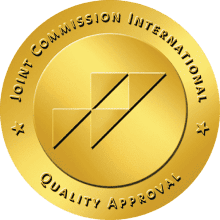Fentanyl Addiction Treatment

What is Fentanyl?
Fentanyl is a synthetic opioid that belongs to the class of powerful pain-relieving medications. It is similar to morphine but is significantly more potent. Fentanyl is commonly prescribed for pain management, but it is also frequently mixed with other substances, such as heroin and cocaine, by drug dealers to reduce expenses.
These synthetic opioids are accessible in various forms, including pills, powders, and prescription patches. Moreover, fentanyl is now being illicitly manufactured as a liquid for nasal sprays, eye drops, papers, lozenges, and even candies. It is crucial to be aware of these unconventional sources of illegal fentanyl as they pose significant risks to developing addiction and facing the potential for overdose.
What Is the Intended Purpose of Fentanyl?
Fentanyl is a potent medication prescribed by medical professionals to manage pain, particularly after surgical procedures. In certain cases, it may also be prescribed to cancer patients and individuals with chronic or severe pain who have developed a tolerance to other opioids. Tolerance refers to the body’s adaptation to a drug, necessitating higher doses to achieve the desired effects. Cancer patients often experience intense and chronic pain as a result of the disease itself, invasive procedures, or cancer treatment such as chemotherapy or radiation therapy. Prescription drugs like fentanyl, with its high potency, can provide effective pain relief for these patients, helping to improve their comfort and overall well-being.
As a Schedule II narcotic, fentanyl is a dangerous drug that has substantial potential for abuse and is legally available only through a valid medical prescription. It comes in various forms and brands, including:
- Actiq (a fentanyl lozenge)
- Fentora (a fentanyl dissolvable tablet)
- Abstral (a fentanyl sublingual tablet)
- Subsys (a fentanyl oral spray)
- Lazanda (a fentanyl nasal spray)
- Duragesic (a fentanyl patch)
Although intended for medical purposes, prescription fentanyl is sometimes misused recreationally due to its pleasurable effects. Effects from prescription opioids can include intense happiness (euphoria), relaxation, pain relief, drowsiness, confusion, dizziness, and nausea. It is important to note that using fentanyl without a prescription or in higher doses than prescribed (fentanyl abuse) can lead to severe health risks and even fatal consequences.
What is Fentanyl Use Disorder?
Fentanyl use disorder is a condition characterized by a problematic pattern of fentanyl use leading to significant impairment or distress. It is classified as a substance use disorder and opioid use disorder, specifically related to fentanyl.
Individuals with opioid use disorders may experience:
- A compulsive urge to seek and use fentanyl
- Continue using fentanyl despite recognizing harmful consequences
- Inability to control or limit the amount of fentanyl used
- Painful withdrawal symptoms when stopping or reducing fentanyl abuse
This disorder can have severe physical, psychological, and social implications, requiring appropriate assessment, intervention, and treatment.
How is Fentanyl Use Disorder Diagnosed?
The diagnosis of substance abuse disorder typically begins with an initial evaluation, where the healthcare professional gathers information about the individual’s medical history, substance use patterns, and associated symptoms. This serves as the foundation for further assessment.
Next, the healthcare professional evaluates whether the individual meets the criteria for fentanyl use disorder. The criteria for fentanyl addiction include aspects such as impaired control over fentanyl use, continued use despite negative consequences, tolerance, and withdrawal symptoms.
A comprehensive evaluation is conducted to assess the physical and psychological effects of fentanyl use. This may involve laboratory tests, physical examinations, and assessments of mental health and cognitive functioning.
Collaboration with other members of the treatment team, such as addiction specialists, psychiatrists, and counselors, may also occur to gather additional information and perspectives. This multidisciplinary approach ensures a comprehensive understanding of the individual’s condition.
The healthcare professional rules out other potential causes of the observed symptoms through a process called differential diagnosis. This helps ensure that the diagnosis accurately reflects fentanyl use disorder and not another medical or psychiatric condition with similar features.
Once a diagnosis is confirmed, the healthcare professional works with the individual to develop an individualized fentanyl addiction treatment plan. This plan may include various interventions and treatment options such as medication-assisted treatment, behavioral therapies, counseling (individual and group therapy), support groups, and other support services tailored to the individual’s needs.
Get Answers to Your Questions Now
Are you looking for information on addiction treatment options, or just need someone to talk to? We are here to help. The treatment specialists at Hillside Detox are available 24/7 to offer support, resources, and care for you or your loved one.
Why is Fentanyl so Dangerous?
Fentanyl poses a significant danger for many reasons. First, its exceptional strength exceeds that of morphine by 100 times and heroin by 50 times. Consuming a large dose of fentanyl can cause significant respiratory depression, resulting in slowed or stopped breathing. Insufficient oxygen supply to the brain can have severe consequences, including permanent brain damage, coma, and even death. Depending on the form, fentanyl exhibits rapid onset and acts fast, compounding the risks associated with its use.
While all opioids carry the risk of overdose, fentanyl is particularly dangerous due to its prevalence in being mixed with other drugs. Unknowingly, recreational users may buy other drugs that are laced with fentanyl, exposing them to its dangers without their awareness. Many cases of overdose deaths are related to illicitly manufactured fentanyl.
What are the Short- and Long-Term Effects of Fentanyl Addiction?
Taking opioid medications, like fentanyl, can have significant short and long-term effects on both the body and mind. In the short term, fentanyl use can lead to immediate effects such as breakthrough pain relief, intense euphoria, and relaxation. It is commonly administered in medical settings to manage severe pain due to its powerful analgesic properties. However, alongside these desired effects, fentanyl can also cause respiratory depression, where breathing becomes slow and shallow. This poses a critical risk of oxygen deprivation, which can lead to severe complications, including coma or even death. Other short-term effects may include sedation, drowsiness, nausea, vomiting, cold flashes, confusion, and constricted pupils.
Long-term fentanyl use can have more profound consequences. Continual use of fentanyl can result in the development of tolerance, requiring higher doses to achieve the desired effects. This escalation in dosage significantly increases the risk of overdose. Prolonged fentanyl use can also lead to psychological and physical dependence, making it difficult to quit without professional help. Over time, individuals struggling with fentanyl abuse may experience detrimental health effects, including respiratory problems, cardiovascular complications, cognitive impairment, mood disorders, and weakened immune function. Chronic fentanyl use can negatively impact relationships, work or academic performance, and overall quality of life.
It is crucial to note that the effects of fentanyl can vary among individuals, and the drug’s potency makes it exceptionally hazardous. Using fentanyl without a prescription or for non-medical purposes is associated with significant risks and should be avoided.
If you or a loved one is struggling with fentanyl use, seeking professional help is essential for proper assessment, intervention, and support on the path to recovery.
Risk Factors of Opioid Drugs
A number of factors can increase an individual’s risk of experiencing an overdose, including:
- Tolerance changes resulting from stopping or reduced use. This usually occurs following inpatient treatment, incarceration, or a period of diminished or no opioid use.
- Variations in the quality or quantity of the opioid drug supply can pose risks to individuals using these substances. Inconsistent drug potency or impurity can lead to unpredictable effects and increase the potential for harm.
- Combining opioids with other substances that depress the respiratory system, such as alcohol or benzodiazepines, significantly amplifies the risks associated with opioid use.
- Co-administration of opioids with stimulants like cocaine or methamphetamine also poses additional dangers.
- The presence of chronic health conditions, such as HIV, Hepatitis C, pulmonary diseases, cardiac diseases, or other health concerns, can complicate the effects of opioid drug use and increase the overall risk.
What are the Signs of Fentanyl Overdose?
A fentanyl overdose presents distinct differences from a regular opioid high. While opioid intoxication often results in a relaxed state, drowsiness, and slurred speech, an overdose manifests as a more profound unconsciousness rather than mere relaxation.
Fentanyl misuse, like other opioids, induces a predictable set of symptoms during an overdose, regardless of whether it’s heroin, morphine, or fentanyl itself. The following signs may be observed in someone who has taken a lethal dose of fentanyl or has overdosed on fentanyl:
- Slow or shallow breathing
- Extreme lethargy, difficulty in awakening, or loss of consciousness
- Constricted or “pinpoint” pupils
- Weak pulse, which can be either slow or rapid
- Vomiting
- Choking or gurgling sounds during breathing
- A limp or lifeless appearance
- Pale, cold, and clammy skin
- Bluish lips and fingernails
Opioid overdoses are dangerous due to suppressed breathing, which restricts oxygen supply to the brain and vital organs. Without adequate oxygen, the body’s survival is compromised. Even with prompt intervention, long-term brain damage can occur. In certain instances, when a fentanyl overdose occurs, it can result in coma and even death. The risk of fatality becomes more pronounced when fentanyl is combined with alcohol or benzodiazepines. It is crucial to recognize the heightened dangers associated with these drug interactions and take prompt action in case of an overdose.
Treatment For Fentanyl Overdose
Fentanyl, similar to other opioids, can be counteracted using a medicine called naloxone. Naloxone is typically the primary intervention utilized by both medical teams and individuals to address a fentanyl overdose.
However, additional treatments may be required for individuals experiencing a fentanyl overdose. Managing an overdose often involves a multidisciplinary medical team working together to provide comprehensive support and addiction treatment. This can involve administering multiple medications and implementing various substance use treatments aimed at stabilizing the individual’s heart rate and breathing pattern.
What is Naloxone?
Naloxone is a medication used to counteract the effects of opioids, including fentanyl, which functions by blocking the receptors in the body that opioids activate. It acts fast to treat an overdose and prevent fentanyl from causing further harm.
A significant advantage of naloxone is its specificity to the body’s opioid receptors, which means it has no impact on individuals without opioids in their system. This quality makes naloxone a crucial intervention whenever a drug overdose is suspected.
Naloxone is accessible to the public in two forms:
- Injection: Administered into a muscle or under the skin, this form enables rapid absorption into the bloodstream. It is available under various names, such as Zimhi.
- Nasal spray: Provided in a pre-filled, needle-free spray, this form delivers the medication through the nostril when the person is in a supine position. It may be known as Narcan or Kloxxado.
Both options are effective for initial responses to most opioid overdoses. However, it’s important to note that fentanyl overdoses may require additional attention. Fentanyl, along with other opioids, can outlast the effects of naloxone, necessitating multiple doses over a period of time to effectively reverse the effects of opioid overdose.
Fentanyl Addiction Treatment Options
Fentanyl addiction treatment requires a comprehensive approach that addresses the physical, psychological, and emotional aspects of fentanyl abuse. The specialized treatment programs at Hillside Detox are tailored to meet the unique needs and recovery goals of individuals struggling with fentanyl addiction.
Medical Detox
Fentanyl detox is a crucial step in the treatment of fentanyl addiction. Detox is the process of removing fentanyl from the body and allowing it to adjust to functioning without the drug. This phase aims to address the physical dependence on fentanyl and manage the associated withdrawal symptoms.
During fentanyl detox, individuals receive close medical supervision to ensure their safety and well-being. Healthcare professionals monitor vital signs, provide necessary medications to ease withdrawal symptoms and severe cravings, and offer emotional support throughout the process.
Medical Supervision
Under the guidance of our medical professionals, individuals undergoing fentanyl detox receive continuous supervision to ensure their safety and well-being. This close monitoring allows for the prompt identification and management of any adverse reactions or complications that may occur during opioid withdrawal symptoms.
Duration of Detox
The duration of fentanyl detox can vary depending on several factors, including the severity of dependence, overall health, and the presence of co-occurring mental illness. Generally, detox can last several days to a week or longer. It’s important to note that detoxification alone is not sufficient for long-term recovery from substance use disorders and is typically followed by comprehensive substance abuse treatment to address the underlying factors contributing to fentanyl addiction.
Withdrawal Symptoms During Fentanyl Addiction Treatment
Withdrawal symptoms during fentanyl detox can be challenging but are managed through a combination of medical interventions and psychological support. Uncomfortable and painful symptoms of fentanyl withdrawal may include anxiety, restlessness, muscle aches, nausea, vomiting, diarrhea, insomnia, and intense cravings. Our healthcare professionals employ evidence-based techniques to alleviate discomfort and provide a safe detox experience from fentanyl and other prescription opioids.
Treatment Modalities & Support
Our fentanyl addiction treatment programs employ a multidisciplinary approach, combining medical interventions, psychological support, and counseling throughout the treatment process. The specific treatment modalities utilized at our rehab centers may vary based on individual needs and treatment protocols. Medication-assisted treatment may be incorporated to alleviate withdrawal symptoms and reduce the risk of complications. Medications used to treat opioid use disorders—including fentanyl addiction—are both safe and effective, playing a crucial role in saving lives. These medications interact with the same opioid receptors in the brain as fentanyl does, but they function differently without producing the same effects.
Support groups, such as Narcotics Anonymous (NA) or SMART Recovery, can also be beneficial for individuals in recovery from fentanyl drug abuse. These groups provide a supportive environment where individuals can connect with others facing similar challenges and share their experiences.
Inpatient & Outpatient Opioid Addiction Treatment
Following fentanyl detox, individuals are encouraged to pursue inpatient or outpatient rehab for comprehensive drug abuse treatment and ongoing support. At Hillside Detox, our residential programs are tailored to meet the unique needs and recovery goals of each individual. During your stay at our rehab center, our experienced medical professionals will collaborate with you to create a personalized treatment plan that addresses the physical, psychological, and emotional aspects of addiction.
Start Treatment at Hillside Detox
If fentanyl dependence has started to take control of your life, reach out to the professionals at Hillside Detox by calling (781) 332-4135 or filling out our confidential online contact form. Our team is standing by to take your call, help you determine what you need to recover, and support you at every step of your recovery journey.
Most Insurance Plans Accepted





Addiction Treatment Programs
Verify Your Insurance
"*" indicates required fields
World Class Amenities
- Cell phones allowed
- Gym and fitness center
- Onsite spa services
- Entertainment theater
- Recreation room
- Support animal friendly
Ready to Get Help?
We have helped countless individuals empower themselves to recover and get the substance use and mental health treatment they need. Know that you’re not alone in this, we are here to help.

We Are Here to Help
Contact us through the confidential form below for assistance on how to find Alcohol Detox, Alcohol Rehab, and a Drug Addiction Treatment Center in Massachusetts.
"*" indicates required fields
